Columnist Daniel Cantor Yalowitz: Why we need civility now

Daniel Cantor Yalowitz
| Published: 03-31-2024 12:24 PM |
What brings a community — any community, our community — together? In times of upheaval, conflict, and transition, there are only truly a few things that matter in the evolution and sustenance of a community: honesty, integrity, trust, respect, and civility. We could certainly have a protracted discussion on this; in the end, though, most lists would include at least these five fundamental facets of community-building and life.
Civility? Such an anachronistic term — like home economics, penman(person)ship, civics, and geography, once upon a time civility (known as “civics”) was taught in most K-12 public school systems throughout our country. As a word, our dictionary defines it as such: (formal) politeness and courtesy in behavior and speech.
It doesn’t take much, hardly anything, these days to recognize that the concept and practice of civility have also taken a back seat (or no seat at all) to STEM and other core subjects like what has been known as “The Three R’s” (readin’, writin’, & ‘rithmetic). Ironic, isn’t it, that that which we need so much more of is precisely that which seems to have all but disappeared from our schooling curricula and perhaps, to a larger extent than ever, even family training.
Without the daily understanding, practice, and refinement of civility, it becomes ever more challenging to build and sustain meaningful relationships and community over time. Why has civility as a common human endeavor gone away?
We live in a country wherein individual expression, idiosyncratic behavior, and understanding the power and importance of each individual’s uniqueness are paramount. In large measure, our Constitution and Bill of Rights are intended to protect all of these, and much more. In the ongoing prioritizing and manifestation of these elements, the commonwealth, safety, protection, and sacrosanct nature of each and every human life have been significantly diminished in many of our institutions, organizations, and systems.
There is a “tipping point” wherein the balance between the collective and the individual, the personal, familial, and professional, and the political has become ever more bifurcated, one in favor of the other. This had had the net effect of denying and minimizing the importance and critical nature of practicing civility.
When civility amongst and between people breaks down, so, too, inevitably do such other precious things like trust, respect, listening, and meaningful dialogue around conflicted topics. Much like William Golding’s 1954 novel, “Lord of the Flies,” we quickly observe that when these aspects of civic life degenerate, then chaos, disarray, mayhem, and fear will ensue. And that is but one example; life and politics in the United States in 2024, 70 years later, are no different. On a more local level, we’ve seen at close hand here in Greenfield what happens when civic and political leaders treat one another poorly and with disrespect. And it takes a community with all its constituents and connected web of relationships both time and energy to make a difference. It also takes time, patience, and steadiness in the face of fractiousness, competition, and one-upmanship to rebuild civility and patterns of respect and kindfulness.
We are more divided as a nation than at any time in the past 175 years. Never have we needed to practice care and compassion across so many divides as we must now. If we do not heed this call, we may well have a civil war — an event and experience that lacks any civic-mindedness and civility. This is not written as a scare or intimidation tactic; in fact, it looks more real and imminent than ever, and words are flung about in the daily news and news media cycles that reinforce this possibility. Further, name-calling and impugning others’ character serve to further denigrate the integrity of any community.
Article continues after...
Yesterday's Most Read Articles
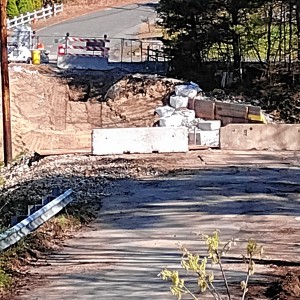 Work on Pinedale Avenue Bridge connecting Athol and Orange to resume
Work on Pinedale Avenue Bridge connecting Athol and Orange to resume
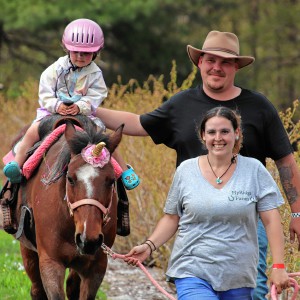 PHOTOS: Enchanted Orchard Renaissance Faire at Red Apple Farm
PHOTOS: Enchanted Orchard Renaissance Faire at Red Apple Farm
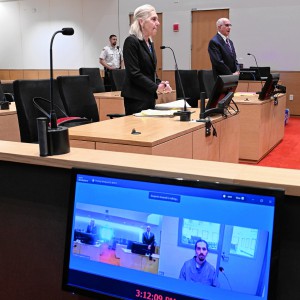 Lawyer argues Joshua Hart’s 2018 conviction for Orange murder had inconsistent verdicts
Lawyer argues Joshua Hart’s 2018 conviction for Orange murder had inconsistent verdicts
 UMass basketball: Minutemen nab another transfer in Arizona State forward Akil Watson
UMass basketball: Minutemen nab another transfer in Arizona State forward Akil Watson
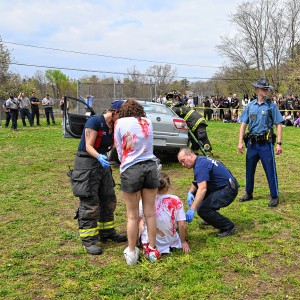 ‘Arrive Alive’ shows Athol High School students the dangers of impaired driving
‘Arrive Alive’ shows Athol High School students the dangers of impaired driving
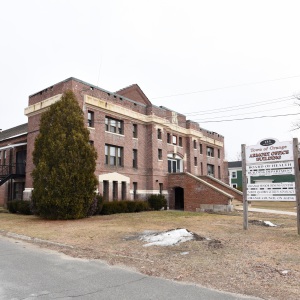 Orange Selectboard declares armory as surplus property
Orange Selectboard declares armory as surplus property
To be healthy and thriving, any community needs to uphold trust and respectful communication as values and practices that permeate its existence to the core. As residents, citizens, and voting members of a community, we are each called on to further the cause and call of civility. Like one bad apple in any bunch, even one miscreant within a community will cause damage. Therefore, we need to look out for one another, have each other’s backs, and hold ourselves and each other accountable and responsible for all our actions, statements, and attitudes. We should recognize that we will always be learning the skills involved in each of these areas of human behavior. If we can each hold curiosity and concern for one another, civility as a process of evolution within any given community will naturally follow.
What does civility include? For starters, listening deeply is critical. More than before, this seems to be in short supply, the more so when differences of opinion and perspective are expressed. Being able to acknowledge and respect differences are critical elements. Equity and equality are of the utmost importance, as well. Above all, without a doubt, love of self and other are attributes that help to achieve and maintain civility, no matter what it is we as a community may be called on to face. We can only achieve and sustain this last human quality if civility and civic-mindedness are important. And — now as ever, they are.
Daniel Cantor Yalowitz writes a regular column in the Recorder. A developmental and intercultural psychologist, he has facilitated change in many organizations and communities around the world. He is former chairman of the Greenfield Human Rights Commission and his two most recent books are “Journeying with Your Archetypes” and “Reflections on the Nature of Friendship.” Reach out to him at danielcyalowitz@gmail.com.

